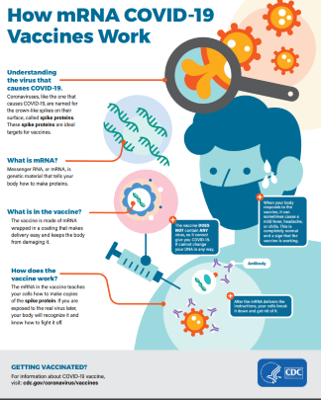

21st February 2022 (6 Topics)
Six African Countries to Receive Revolutionary mRNA Technology to Set up Vaccine Production Centres: WHO
Context
The World Health Organization has announced that six African countries will be given the revolutionary mRNA technology to set up their own vaccine production centres helping the continent acquire self-reliance against the Covid pandemic.
About
About technology transfer project:
- Egypt, Kenya, Nigeria, Senegal, South Africa and Tunisia to establish mRNA vaccine production.
- The global mRNA technology transfer hub was established in 2021 to support manufacturers in low- and middle-income countries to produce their own vaccines, ensuring that they have all the necessary operating procedures and know-how to manufacture mRNA vaccines at scale and according to international standards.
- Primarily set up to address the COVID-19 emergency, the hub has the potential to expand manufacturing capacity for other products as well, putting countries in the driver’s seat when it comes to the kinds of vaccines and other products they need to address their health priorities.
- Depending on the infrastructure, workforce and clinical research and regulatory capacity in place, WHO and partners will work with the beneficiary countries to develop a roadmap and put in place the necessary training and support so that they can start producing vaccines as soon as possible.
About mRNA vaccines:
- The first known demonstration of RNA vaccines was by scientists at Karolinska Institute in
- The earliest known attempt to use mRNA against disease is attributed to Hungarian biochemist Katalin Kariko.
- mRNA vaccines trick the body into producing some of the viral proteins itself.
- They work by using mRNA, or messenger RNA, which is the molecule that essentially puts DNA instructions into action.
- Inside a cell, mRNA is used as a template to build a protein.
How it works?
- To produce an mRNA vaccine, scientists produce a synthetic version of the mRNA that a virus uses to build its infectious proteins.
- This mRNA is delivered into the human body, whose cells read it as instructions to build that viral protein, and therefore create some of the virus’s molecules themselves.
- These proteins are solitary, so they do not assemble to form a virus.
- The immune system then detects these viral proteins and starts to produce a defensive response to them.
About HGCO19:
- The novel mRNA vaccine candidate, HGCO19 has been developed by Pune-based biotechnology company Gennova Biopharmaceuticals Ltd. in collaboration with HDT Biotech Corporation, USA.
- HGCO19 has already demonstrated safety, immunogenicity, neutralization antibody activity in the rodent and non-human primate models.



